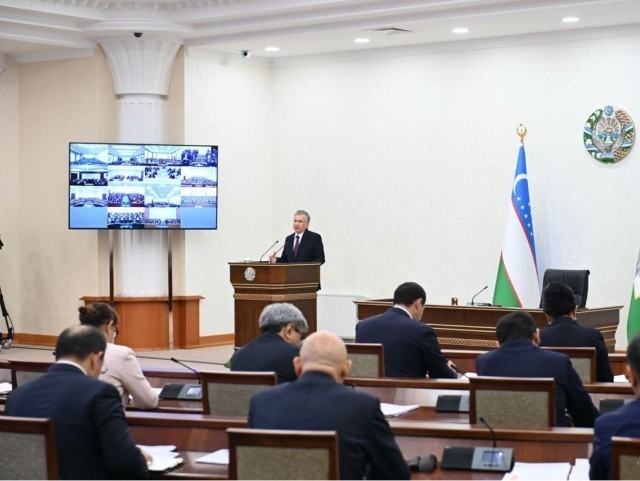The number of ministries has been reduced from 25 to 21, and the powers of ministers expanded
Local
−
24 December 2022 24247 3 minutes
As part of the first stage of the New Uzbekistan administrative reforms of the Council of the Agency for Strategic Reforms under the President of the Republic of Uzbekistan, from 1 January 2023 the number of independent executive authorities of the republic will be reduced from 61 to 28, including the number of ministries from 25 to 21. The proposal is being approved. This is mentioned in the decree “On measures to implement administrative reforms of New Uzbekistan” signed by President Shavkat Mirziyoyev yesterday, 23 December.
The Cabinet of Ministers system is formed by the following ministries:
• Ministry of Investments, Industry and Trade;
• Ministry of Economy and Finance;
• Ministry of Mining and Geology;
• Ministry of Construction and Housing and Communal Economy;
• Ministry of poverty alleviation and employment;
• Ministry of Higher Education, Science and Innovation;
• Ministry of preschool and school education;
• Ministry of Natural Resources;
• Ministry of Youth Policy and Sports;
• Ministry of Agriculture;
• Ministry of water management;
• Ministry of digital technologies;
• Ministry of justice;
• Ministry of Transport;
• Ministry of Culture and Tourism;
• Ministry of Defense;
• Ministry of Energy;
• Ministry of Health;
• The Ministry of Foreign Affairs;
• Ministry of Internal Affairs;
• Ministry of Emergency Situations.
In order to increase the institutional independence of the executive authorities of the Republic, such a procedure is established, according to which the President of the Republic of Uzbekistan and the Cabinet of Ministers determine the organizational structure of the executive authorities of the Republic, the number of state units and deputy heads, also the directions of activity are determined.
In this:
• the practice of approving the structures of the central apparatus and regional divisions by the President of the Republic of Uzbekistan and the Cabinet of Ministers will be abolished;
• the heads of the republic’s executive authorities are given the right to approve the structure of the central apparatus and regional divisions and state units within the allocated funds and based on the defined tasks;
• the heads of executive authorities of the republic are given the authority to establish specific regional or district (city) units or to organize them in an inter-district (inter-regional) form based on the needs and conditions of the territory.
Also, state units of executive authorities, including executive positions, will be accepted up to 30 percent, and a fair labor payment system will be introduced.
As part of the administrative reforms, the executive authorities, which are being transformed, will be able to operate effectively based on the new requirements set forth in this decree.
By increasing the financial and institutional independence of leaders, an effective system of working with regions will be introduced;
By regulating the functions of the executive authorities of the republic, they will be reduced by at least 10%, the number of state functions transferred to the private sector will be increased by at least 3 times, public-private partnership and outsourcing mechanisms will be widely introduced.
Live
All
